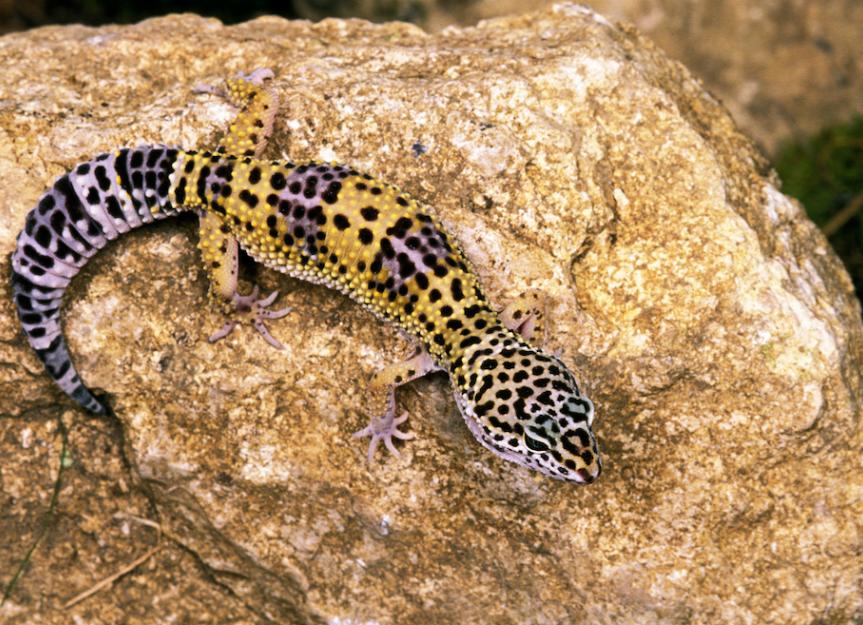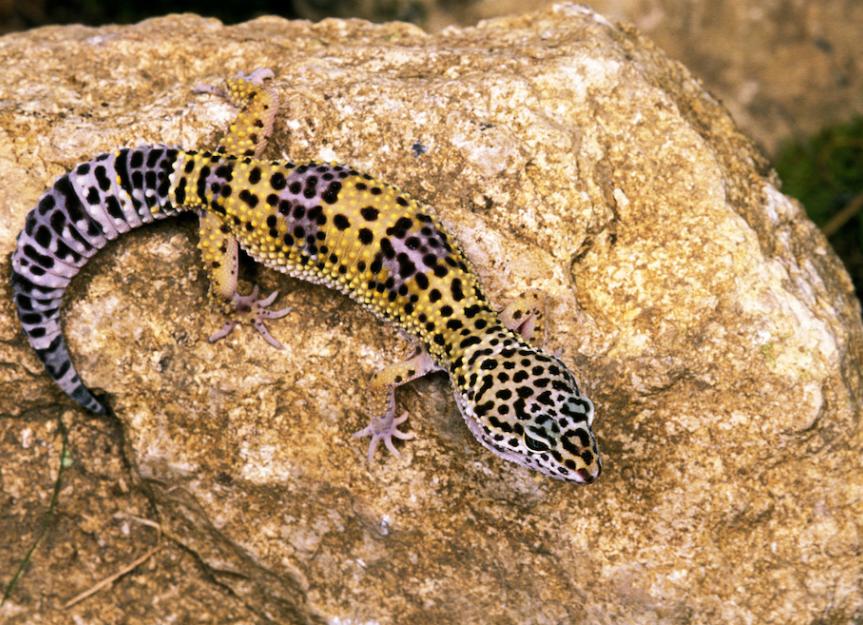Geckos are fascinating creatures that have captured the attention of many. These small lizards have become popular as pets, but they also thrive in the wild. One of the most intriguing questions about geckos is how long they can live in their natural habitat.
Geckos are known for their adaptability and resilience, which allows them to thrive in a variety of environments. However, their lifespan in the wild can vary greatly depending on several factors, including their species, habitat, and predators. In this article, we will explore the lifespan of different gecko species in their natural habitat and the factors that contribute to their longevity.

How Long Do Geckos Live in the Wild?
Geckos are fascinating creatures that are known for their unique physical features and interesting behavior. These small lizards are commonly found in tropical and subtropical regions around the world, and they have become a popular pet among reptile enthusiasts. However, many people are curious about how long geckos can live in the wild. In this article, we will explore the lifespan of geckos in their natural habitat and the factors that can affect their longevity.
Gecko Species and Lifespan
There are over 1,500 different species of geckos, and their lifespan can vary depending on their species, habitat, diet, and other factors. Generally, geckos have a lifespan of 10 to 20 years in the wild, but some species can live up to 30 years or more. For example, the giant gecko, which is found in New Caledonia, can live up to 34 years in the wild.
The lifespan of geckos can also be affected by their size. Smaller geckos tend to have shorter lifespans, while larger geckos can live longer. For example, the tokay gecko, which is one of the largest gecko species, can live up to 20 years in the wild.
Factors That Affect Gecko Lifespan
Several factors can affect the lifespan of geckos in the wild. These include:
Diet
Geckos are carnivorous and feed on insects, spiders, and other small animals. A varied and nutritious diet can help to ensure that geckos live a long and healthy life. In the wild, geckos may have access to a wider variety of prey than captive geckos, which can help to improve their lifespan.
Habitat
The habitat of geckos can also affect their lifespan. Geckos that live in environments with a stable temperature, humidity, and food supply are more likely to live longer than those that live in unstable or unsuitable habitats. For example, geckos that live in areas with high levels of predation may have a shorter lifespan due to the increased risk of being eaten by predators.
Predation
Predation is one of the biggest threats to the lifespan of geckos in the wild. Many animals, including birds, snakes, and mammals, prey on geckos. Geckos that are able to avoid predation are more likely to live longer than those that are not.
Climate Change
Climate change can also affect the lifespan of geckos in the wild. Changes in temperature and rainfall patterns can alter the availability of food and water, which can have a negative impact on gecko populations. In addition, habitat loss and fragmentation caused by climate change can also reduce the lifespan of geckos.
Benefits of Studying Gecko Lifespan
Studying the lifespan of geckos in the wild can provide valuable insights into their ecology, behavior, and conservation needs. By understanding the factors that affect gecko lifespan, scientists can develop strategies to protect and conserve gecko populations. Additionally, studying gecko lifespan can also provide valuable information for the captive breeding and management of geckos in captivity.
Conclusion
In conclusion, geckos have a lifespan of 10 to 20 years in the wild, but this can vary depending on their species, size, habitat, and other factors. Studying the lifespan of geckos can provide valuable insights into their ecology, behavior, and conservation needs, and can help to develop strategies to protect and conserve gecko populations.
Frequently Asked Questions
Geckos are fascinating creatures that are known for their ability to climb walls and ceilings. They are also popular pets that are easy to care for. One of the questions that many people ask is how long do geckos live in the wild? Here are the answers to some common questions about gecko lifespan in the wild.
1. How long do geckos typically live in the wild?
The lifespan of a gecko in the wild depends on several factors, including the species of gecko, the environment in which it lives, and the availability of food and water. In general, most geckos live between 5 and 15 years in the wild.
However, some species of gecko, such as the giant gecko, can live for up to 20 years in the wild. Other factors that can affect the lifespan of a gecko include disease, predation, and habitat destruction.
2. How do geckos survive in the wild?
Geckos are adapted to survive in a variety of environments, including deserts, rainforests, and grasslands. They are able to climb walls and ceilings due to the unique structure of their toes, which are covered in tiny hairs that allow them to stick to surfaces.
In addition, geckos are able to survive for long periods of time without water by storing it in their bodies. They also have a unique ability to shed their tails when threatened by predators, which allows them to escape and regrow a new tail later on.
3. What do geckos eat in the wild?
Geckos are primarily insectivores, which means that they eat insects such as crickets, moths, and flies. Some species of gecko are also known to eat small vertebrates, such as lizards and mice.
In the wild, geckos are opportunistic feeders and will eat whatever prey is available to them. They are able to catch their prey using their quick reflexes and their ability to climb walls and ceilings.
4. How do geckos reproduce in the wild?
Geckos reproduce sexually, with males and females mating during the breeding season. During mating, the male deposits sperm into the female, who then lays eggs a few weeks later.
The number of eggs laid by a female gecko varies depending on the species, with some laying only one or two eggs and others laying up to 100 eggs at a time. The eggs are typically laid in a nest or burrow, where they are left to hatch on their own.
5. What are the biggest threats to geckos in the wild?
Geckos face a number of threats in the wild, including habitat loss, predation, and disease. Many species of gecko are also threatened by the pet trade, as they are often captured and sold as exotic pets.
To help protect geckos in the wild, it is important to support conservation efforts and to avoid purchasing geckos or other exotic animals from pet stores or online retailers.
Just How Fast Do Leopard Geckos Grow? 🦎
In conclusion, the lifespan of geckos in the wild varies depending on the species. Some may live for only a few years, while others can survive for over a decade. However, factors such as habitat destruction, climate change, and predation can significantly impact their survival.
It’s important to note that geckos have adapted to their environments in unique ways, allowing them to survive in harsh conditions. Some species are able to store water in their bodies, while others have developed specialized feet that allow them to climb vertical surfaces with ease.
Despite the challenges they face, geckos continue to be an important part of their ecosystems. Their ability to control insect populations and serve as food for larger predators makes them integral to maintaining a healthy balance in nature.
Overall, the lifespan of geckos in the wild is a fascinating topic that highlights the resilience and adaptability of these amazing creatures. Whether you are a nature enthusiast or simply curious about the world around you, learning more about geckos is sure to be a rewarding experience.


